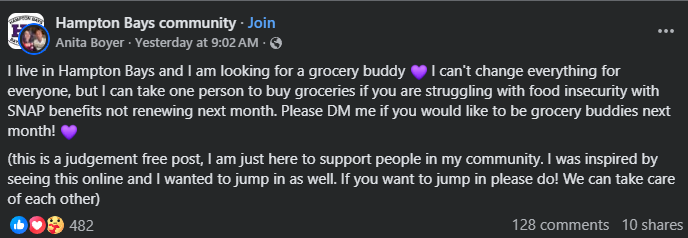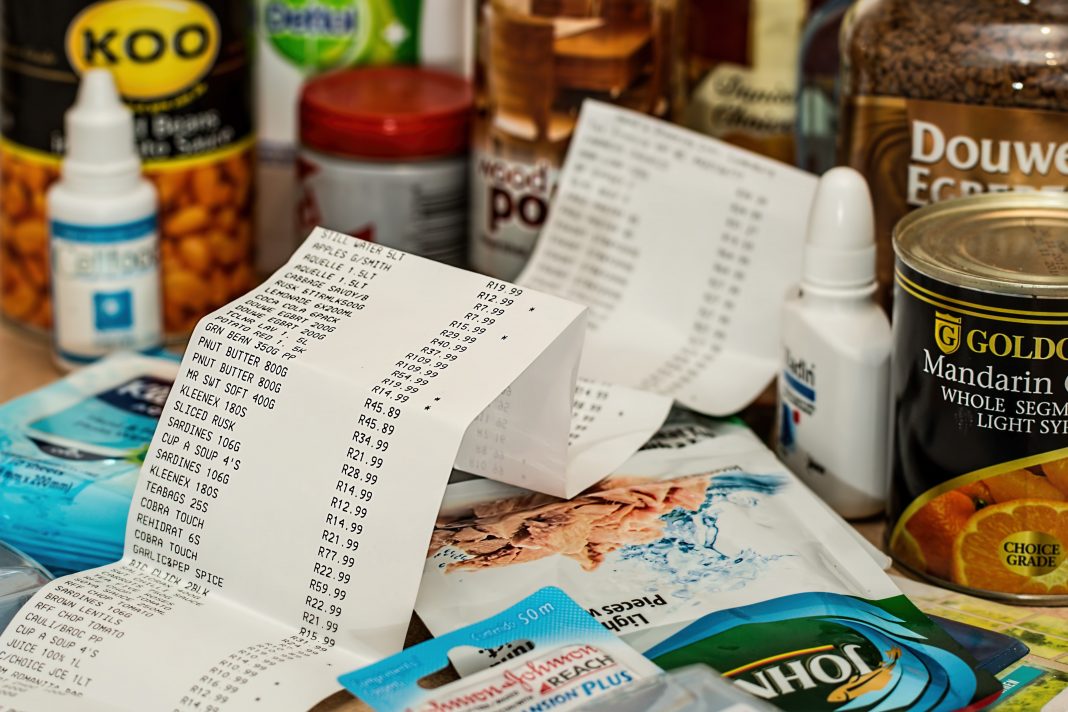As the federal government shutdown stretches into its fourth week, now the second-longest in U.S. history, millions of Americans who depend on the Supplemental Nutrition Assistance Program, or SNAP, are facing the threat of losing their food benefits. With federal funding running dry, communities across the country are responding with a grassroots effort built on compassion and cooperation — a movement of neighbors helping neighbors known as grocery buddies.
The idea is simple. People with the means volunteer to help those who may soon lose their SNAP benefits. Through neighborhood Facebook groups, online forums, and word-of-mouth, volunteers and families in need are pairing up to buy groceries, share store gift cards, or shop together.
A Growing Movement

Across the United States, stories of kindness and solidarity are emerging as grocery buddies reach out to support families facing uncertainty. In North Carolina, one resident offered to help a single mother of four by using a store gift card to purchase essentials. In Maryland, a church minister started a local grocery buddy network after learning that her neighbors might soon lose access to food benefits.

These small acts of generosity are multiplying quickly. Social media posts offering and requesting help are being shared and reposted in towns and cities nationwide. What began as a few online gestures has evolved into a widespread mutual aid network connecting volunteers with struggling families.
The Financial Strain
The U.S. Department of Agriculture, which administers the SNAP program, has warned that it does not have the $8 billion required to fund food benefits for November. Without congressional action, millions of households could see delays or interruptions in their benefits.
SNAP provides an average of $188 per person each month, helping low-income families put food on the table. Benefits are distributed on a rolling basis, meaning some households could lose assistance as early as this weekend while others might not feel the effects until mid-November.
Food banks across the country, already strained by high demand and rising prices, are preparing for an increase in requests for help. Many organizations say they are seeing more calls from families worried about running out of food.
Communities Filling the Gap
In many cases, the grocery buddy effort has become a bridge between local residents and existing community programs. Volunteers are purchasing groceries, donating gift cards, or connecting people with nearby food pantries. Some groups are even organizing regular shopping trips, ensuring families have access to fresh food and essential items.
Faith organizations, community centers, and local nonprofits have started promoting the idea as a way to keep people fed while federal assistance remains frozen. Participants say the program helps preserve dignity and choice, allowing families to shop for what they need rather than relying solely on food donations.
Compassion Amid Crisis
The grocery buddy movement has become a symbol of resilience during the shutdown. What began as a temporary solution has shown the strength of communities when traditional safety nets fail. Across the country, ordinary people are stepping forward to ensure that their neighbors do not go hungry.
As the political stalemate in Washington continues, families are left uncertain about when benefits will resume. Until then, volunteers are proving that kindness can fill the gap left by government inaction.
While grocery buddies cannot replace SNAP, their actions are offering something equally vital — a reminder that compassion and solidarity remain strong in times of hardship.





